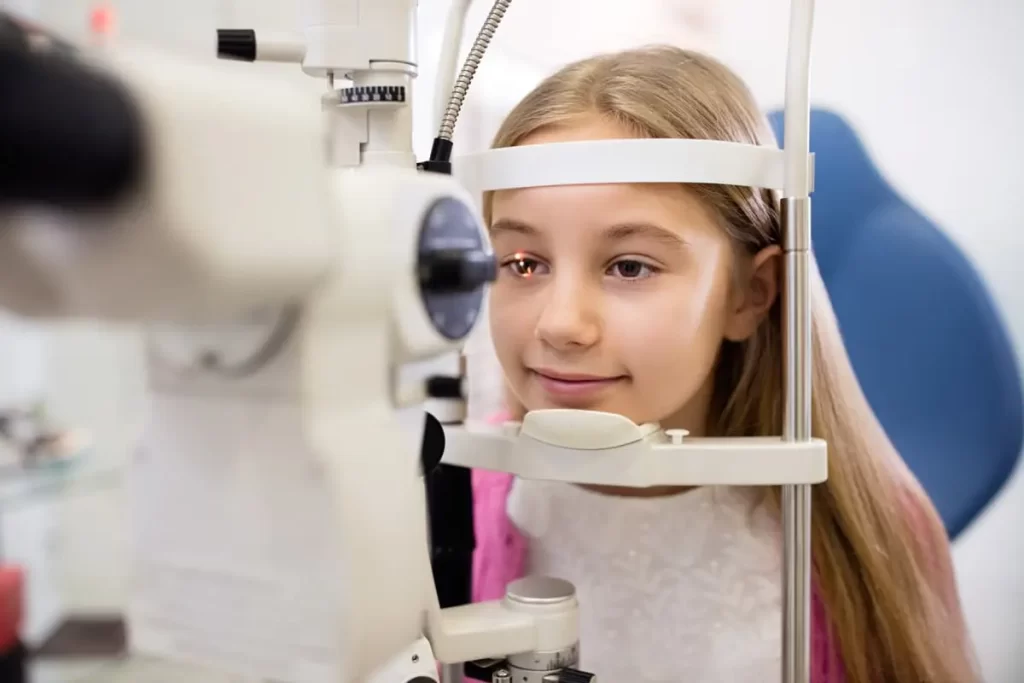Understanding the Comprehensive Definition of Vision Beyond Just Clear Sight
Many individuals often equate an optometrist solely with the provision of prescriptions for corrective eyewear or remedies for dry, fatigued eyes. However, it is crucial to appreciate that not every visual challenge stems from merely experiencing blurry vision. In fact, there are numerous instances where the eyes may appear visually healthy, yet individuals encounter difficulties such as struggles with reading comprehension, stagnation in academic progress, or a noticeable decline in concentration and focus as the day unfolds. Identifying these subtle yet significant indicators can be instrumental in addressing underlying vision issues that might otherwise go unnoticed and untreated.
At Eyes by Design, we focus on the field of behavioural optometry, which signifies a sophisticated clinical methodology that extends beyond the fundamental ability to see clearly. Our primary emphasis lies in how the entire visual system contributes to enhancing learning performance and facilitating everyday activities. This approach acknowledges that vision is not a static condition but rather a dynamic interaction among the eyes, the brain, and the body, all harmoniously collaborating to create a seamless and effective visual experience.

Delving into the Essential Principles and Benefits of Behavioural Optometry
Behavioural optometry, frequently referred to as functional or developmental optometry, is built on the understanding that clear vision is merely the foundation of a complete visual experience. For vision to provide maximum benefit, the eyes must function efficiently, track accurately, adapt focus seamlessly, and relay information to the brain in a manner that supports movement, posture, memory, and learning processes. This comprehensive approach recognises the intricate connections between visual skills and overall well-being.
This holistic methodology includes several fundamental aspects:
- Effortless tracking across books, pages, and digital screens
- Fast and dependable focusing across a range of distances
- Effective coordination between both eyes for optimal performance
- Enhanced spatial awareness and bodily control
- Accurate visual processing during real-time activities
A behavioural optometrist conducts thorough assessments of these interconnected systems. The primary objective is to ascertain not just whether you can see clearly but also if your visual system is functioning at its best to enhance your daily activities and social interactions. This detailed evaluation is critical for identifying any potential areas of concern.

Identifying Key Signs That Visual Challenges May Be Impacting Your Life
1. Your Child Struggles with Reading Despite Being Articulate and Intelligent
A child who displays intelligence and expressiveness yet encounters difficulties with reading may not necessarily have a learning disability. Instead, they could be facing visual dysfunction. Symptoms such as skipping lines, using fingers to follow text, or reporting that words appear to blur or shift are critical indicators that merit further investigation. We perform extensive assessments to evaluate how the eyes function during prolonged near activities like reading, where even minor inefficiencies can often be overlooked during standard testing.
2. Experiencing Frequent Headaches or Eye Strain After Prolonged Screen Exposure
Many individuals tend to dismiss digital eye strain as a routine issue; however, symptoms like pressure behind the eyes, headaches at the end of the day, or difficulties in focusing can signal a breakdown in visual coordination. Through our detailed behavioural assessments, we can ascertain whether the muscles responsible for eye alignment and focus are being overtaxed due to the rigours of screen-based tasks and activities.
3. Exhibiting Poor Coordination, Clumsiness, or Reluctance to Participate in Sports
Vision plays a pivotal role in facilitating movement and coordination. If a child appears hesitant to engage in ball sports, struggles to catch objects, or experiences challenges maintaining balance, these behaviours may be connected to how their brain interprets visual-spatial cues. Such tendencies often reflect difficulties in visual-motor integration rather than a deficiency in athletic ability or interest.
4. An Expressive Child Who Faces Difficulties with Written Assignments
Many children who are naturally curious and verbally articulate may underperform academically due to excessive effort exerted in tracking and processing written material. Behaviours such as fidgeting, daydreaming, slow completion of tasks, or reluctance to engage with reading could arise from unrecognised functional vision issues, rather than simple disinterest or defiance.
5. Continuing Difficulties Despite Wearing Prescription Glasses
Some patients still encounter challenges even after multiple adjustments to their prescription glasses. They may struggle to relax their eyes, face depth perception issues, or never achieve visual comfort. This often indicates underlying concerns with eye teaming or neurological processing rather than merely simple refractive errors, highlighting the need for a comprehensive evaluation.

What to Expect During a Comprehensive Behavioural Optometry Evaluation
At Eyes By Design, we adopt a thorough, systematic, and highly personalised approach to our assessments. We meticulously evaluate how your eyes move, work in unison, and respond to various demands. Our primary focus areas encompass:
- Control and precision of eye movements
- Flexibility and endurance in focusing
- Alignment and coordination of the eyes
- Visual memory and cognitive load management techniques
- Coordination and spatial reasoning capabilities
Based on our assessments, we develop a tailored plan that may include therapeutic lenses, vision therapy, or practical modifications to your environment, whether at school or in the workplace, ensuring a bespoke approach to improving your visual experience and overall functionality.
Grasping the Influence of Vision on Everyday Life and Learning Efficiency
If you or your child are encountering daily struggles that conventional eye examinations fail to clarify, a behavioural optometry assessment may reveal the underlying factors that contribute to these frustrations. This process extends beyond merely achieving clearer vision; it encompasses the pursuit of more comfortable seeing, enhanced confidence in movement, and improved learning efficiency, all of which play a pivotal role in personal and academic success.
At Eyes By Design in Kincumber, we are devoted to assisting individuals in realising the complete potential of their vision through comprehensive behavioural care. Our holistic approach aims to address the multifaceted nature of vision and its profound impact on overall quality of life, ensuring that every individual can thrive.
This article aims to enhance understanding and knowledge regarding general eye health topics.
It should not replace professional advice, diagnosis, or treatment.
Always consult your healthcare professional before incorporating this information into your health regimen.

Dr Nicholas Altuneg
For over two decades, my utmost passion has been to empower individuals of all ages to lead improved lives through enhanced vision. At Eyes by Design, we firmly believe that vision encompasses far more than merely the ability to see clearly or read small letters from a distance; it profoundly influences your perceptions and reactions throughout every moment of the day.
Read more about Dr Nick
The Article: Signs You Need a Behavioural Optometrist first appeared on https://writebuff.com
The Article Behavioural Optometrist: Key Signs You Shouldn’t Ignore Was Found On https://limitsofstrategy.com

